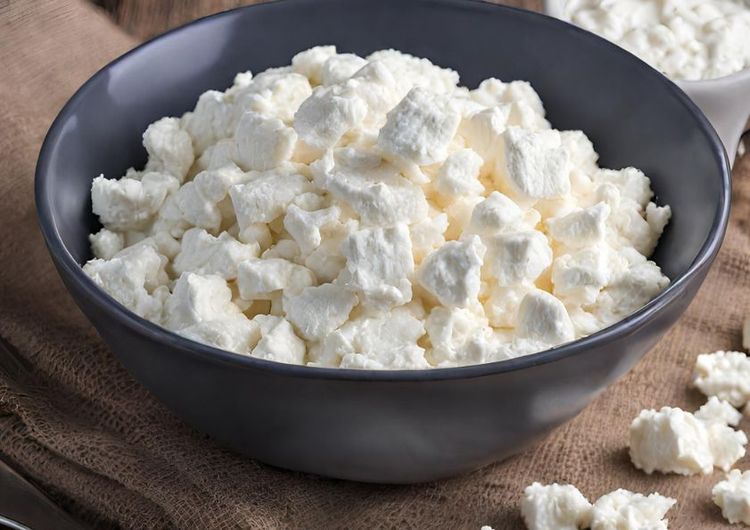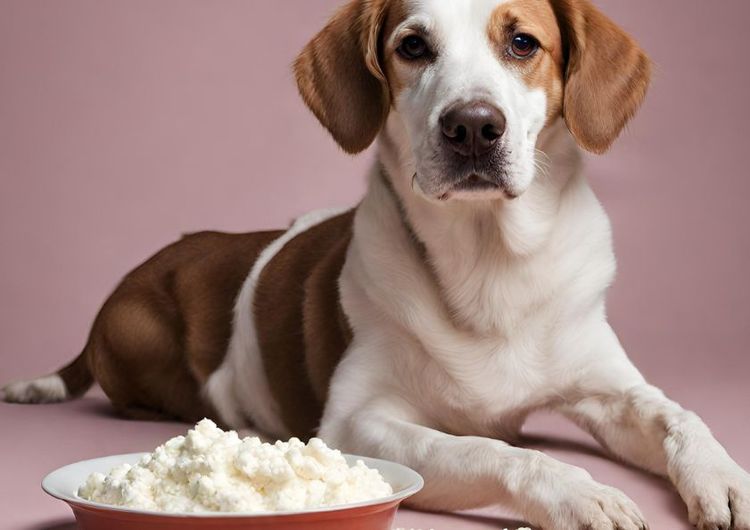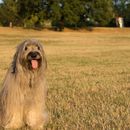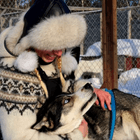Dogs and cottage cheese: A nutritional review
Introduction to the dog diet and cottage cheese
In dog nutrition, the importance of a balanced and healthy diet is often emphasized. Cottage cheese, known for its lightness and high protein content, is a food that has recently gained attention in pet nutrition. In this blog post, we will look at how cottage cheese can be beneficial for dogs, the potential drawbacks and practical tips for incorporating it into a dog's diet.
Nutritional values and properties of cottage cheese
Cottage cheese is primarily known for its high protein content and low fat content.
A 100 gram portion contains about
- 11 grams of protein,
- 4 grams of fat and
- 3 grams of carbohydrates.
- It is also a source of important vitamins and minerals such as calcium, phosphorus and B vitamins, which are essential for the bone and muscle health of dogs.

Benefits of cottage cheese in dog nutrition
Source of protein and muscle building
As a high-quality source of protein, cottage cheese helps to build muscle and maintain muscle health in dogs. Protein is essential for muscle recovery and growth, especially in active and young dogs.
Supporting bone health
The high calcium content in cottage cheese promotes bone strength and health. Calcium is a key element for the development and maintenance of strong bones, especially in puppies and older dogs.
Easy digestibility
Cottage cheese is generally well tolerated by dogs and is easily digestible. This makes it a suitable food supplement, especially for dogs with sensitive stomachs or digestive problems.
Possible disadvantages and precautions
Lactose intolerance
Some dogs may be lactose intolerant, which must be taken into account when feeding cottage cheese. Symptoms of lactose intolerance include stomach upset, diarrhea and vomiting.
Fat content and calories
Although cottage cheese contains less fat than other cheeses, its fat content can be problematic for dogs with weight problems or a tendency to pancreatitis. Controlled feeding is therefore recommended.
Salt content
The salt content in some cottage cheese products can be harmful to dogs, especially those with heart or kidney disease. It is advisable to choose cottage cheese with a low sodium content.

Feeding recommendations
The amount of cottage cheese that can be given to a dog depends on several factors, including the dog's size, age, activity level and general health. A general rule of thumb is to consider cottage cheese as a small part(no more than 10%) of the daily food intake. A veterinarian should always be consulted for exact recommendations.
Alternative to cottage cheese
For dogs that cannot tolerate cottage cheese or for whom it is unsuitable, there are alternatives. Curd cheese, low-fat natural yoghurt or special dog food supplements with similar nutritional values can be used as a substitute.
Cottage cheese can be a nutritious addition to a dog's diet, provided it is given correctly and in moderation. The benefits such as high protein and calcium content are offset by the potential disadvantages such as lactose intolerance and fat content. A balanced diet, tailored to the specific needs of the individual dog, remains the key to a healthy and happy pet's life.




















